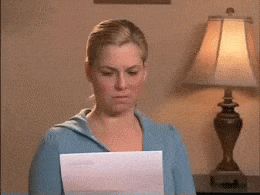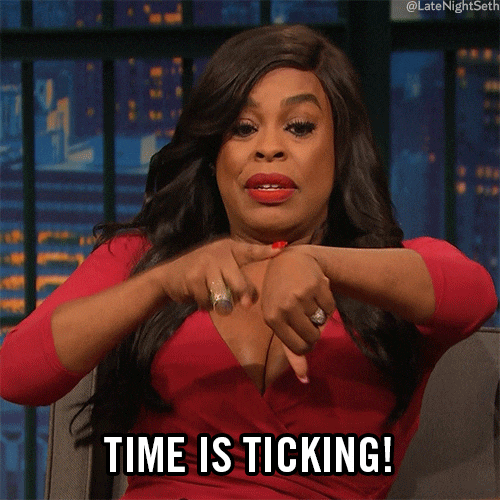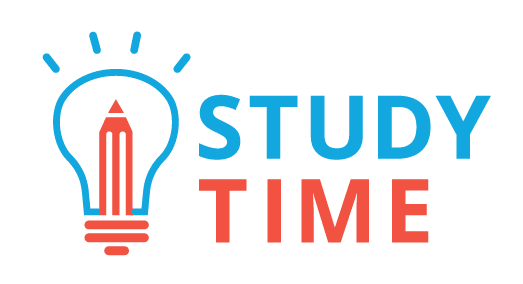After a wild year filled with Covid restrictions and teacher absences, exam season is finally upon us. No matter how you’ve found 2022, all NCEA students are all at the time where we’re getting into some pretty hectic revision.
Trust us, we know this is a stressful time of year, and revision is never easy. So, we got in touch with our Instagram followers, and we asked you what study problems are getting in the way of your revision. In this article, we’re going to break down eight of the most common study issues NCEA students are facing, and give you some advice on how to overcome them.
Problem #1: Staying Focused During Revision
Without a doubt, this was one of the most common replies to our (incredibly scientific) Instagram poll. Honestly, you’d be hard pressed to find someone who hasn’t struggled with staying focused while studying.

So, what can we actually do about it?
First of all, eliminate distractions.
Give your phone to your parents, a sibling, or just put it in a different room until you’ve studied for a set period of time. Use Chrome extensions such as Blocksite to stop yourself from habitually checking Instagram or other social media when studying. Finally, organise your desk or study space enough so that you’re not totally surrounded by clutter, to help your brain stay on task.
Secondly, use time management.
A lot of people struggle to focus because they’re forcing themselves into an unsustainable study routine. To ensure you’re maintaining a good level of distraction-free focus, use a time blocking technique such as the ‘25 minutes work, 5 minute break’ split of the Pomodoro method.

Did we mention there’s another Chrome extension called Strict Workflow that gives you a Pomodoro-style timer on your actual Google tabs? This one is a real lifesaver to help you manage time while also blocking distracting sites. Win-win.
Don’t be afraid to change up the 25/5 into different lengths of time, such as 45/15, if that works better for you. Not to mention, adding in frequent breaks where you can get a snack, have a chat with a friend, or exercise can greatly improve your focus.
Just avoid spending your breaks on Netflix or social media. Because these sites are hard to get off of once you’re on there, it’s better to just avoid them while studying altogether.

Problem #2: Anxiety During Revision and Exams
Whether your nerves set in before the exam or when you’re in the exam room, feeling anxious about exams is totally normal. To better prepare yourself, focus on two main things:
- Use anti-anxiety techniques
- Build self assurance
For instance, some students can find engaging in exercise, be it a casual walk or a serious HIIT routine, to be a great way to get out nervous energy the morning of the exam. For other people, venting about your papers to other students can help alleviate some of the study stress.

Overall, though, focus on getting enough sleep, eating enough, and limiting caffeine intake. It’s not likely that these tips will totally get rid of your anxiety, but they will prevent it getting worse.
To get ourselves feeling more confident with exams, it’s all about taking it slow, and proving to ourselves that we’ve got it.
One of the best ways to do that is to visualise our progress by completing questions from a workbook or past exam. Specifically, start out with something you know you can get right. We need to get some wins early on to start showing ourselves that we’ve got this under control, and that our anxiety isn’t always rational.

Work up to being able to complete most (or all!) of a past paper, and mark it against the NCEA schedules. Not only is this a great study technique, but your anxiety in the exam room will likely diminish if you’ve already shown yourself that you can get certain grades.
That being said, if your anxiety feels so intense that it doesn’t ever really go away, or it severely hinders you from performing in your exams, it might be a good idea to chat things through with a parent or teacher.
Problem #3: How Do I Actually Study?
It’s a great question, but it’s hard to answer. We know that exams are right around the corner, so we’ll hit you with our best last-minute revision tips.
Use active recall to test yourself
If you’re a loyal StudyTime follower, you’ll already know about this S-tier study technique. For the uninitiated, active recall is all about getting your brain to remember content without any help.
Using flashcards, drawing diagrams, completing past papers, you name it – as long as you’re not getting help from your notes or Google, and you’re remembering all the information by yourself, it’s active recall.
More on why active recall is the best study technique here, but for now, just trust us on this one.
Be honest about what you don’t know, and learn it
We can promise you that there is no use in convincing yourself that a tricky concept “won’t show up” in your exam, or that it just isn’t worth enough points to justify revising it. Or – worse still – don’t lie to yourself and say that you understand something, when you never actually get correct answers for those same questions.

Hold yourself accountable, and make an effort to work on understanding what you’re not confident with.
A quick and easy way to do this is to grab a StudyTime checklist and test yourself on each concept. It’s okay if you can’t prove to yourself that you’re already confident enough with that concept, just note it down as something you need to work on.
Use resources
Studying NCEA on your own is hard enough, so when you’re trying to learn new concepts, check out some of these options to make life easier.
- StudyTime (English, sciences, and maths – the best of the best, or so we hear)
- No Brain Too Small (science – all levels, all topics)
- Man vs Maths (maths – all levels, all topics)
- SparkNotes (English written and oral text analysis)
Also, just Google the topic you’re studying for! You’ll find a world of genius NCEA resources that’ll make things go so smoothly you’ve just got to spend a little time looking for them.
Problem #4: Started Studying, Realised You Know Nothing
This is perhaps one of the worst problems on this list, but if you’re struggling with this at the moment, don’t freak out! With NCEA, there’s always a pathway to success out there somewhere, it’s just a matter of finding it.
At this stage, it’s important to just focus on the basics.
Cut yourself a whole lot of slack, and pretend those complicated merit and excellence questions don’t exist. Devote your time to practising the achieved-level concepts, as well as any other trickier questions you feel confident trying out.
Try implementing consistent and frequent study sessions, with a decent amount of breaks, so that you can approach each revision session with a clear head. Remember that, no matter what your grades are, there’s always a way to get wherever you want to go, so just do your best!
Avoid being harsh or putting too much pressure on yourself, too – that’ll only make you feel worse, and it won’t help you get any further with the content. Again, you’ll be able to cover lots of ground in a short period of time if you just hammer home those basic concepts with consistent, effective study.

For a step-by-step breakdown on how to get through your revision, have a flick through this article on preparing for exams.
Problem #5: Exams Are Too Close Together
For this one, we’re going to outsource straight away to another StudyTime article from earlier on this year – Dealing with Multiple Assessments.
It’ll take you through how to successfully strategise and manage your time, what revision techniques to use, and how to ensure you’re getting the most out of your revision. Does it get any better than that? We don’t think so.
Problem #6: Too Stressed to Study
Bonus points if your problem is that you’re too stressed to study, but not studying is making you even more stressed. Yikes.
To help get over this frustrating barrier, give the 10-minute rule of productivity a try. When you’re staring down a mountain of revision that’s got a pretty strict time limit, the first thing to focus on is just getting started. That’s where our 10-minute rule comes in.
This rule is all about committing yourself to 10 minutes of revision. It doesn’t matter what you accomplish, or what you do, as long as this 10 minutes of revision is fairly productive and meaningful (aka, don’t just read your notes). Once that 10 minutes is up, you can either choose to finish what you’ve started and keep on studying, or you can just stop.

Oftentimes, the study stress just arises from not knowing where to start. So, if you can muster up enough organisation and confidence to decide on a question to just try for 10 minutes, that barrier – and your stress – will start to seem easier to get on top of.
Using study rewards such as your favourite snacks or activities to motivate you to study can also really help. Just be sure to focus on getting some study done, even if you don’t feel like you’re learning much. Just congratulate yourself for making any progress, even if it’s not your best work – progress is progress, guys.
Problem #7: Studying is Boring
Yeah, tell us something we don’t know.

Still, even though studying does usually suck, here are some quickfire ways to spice it up a little bit more.
- Study with a friend: If you can find a study buddy that won’t distract you the whole time, you’ll be motivated to study for longer, and it’ll be easier to work through difficult questions.
- Try something new: Ditch the past papers for alternative techniques, such as watching videos and notetaking, drawing mindmaps and diagrams, and writing/answering your own test questions.
- Study somewhere else: Hit up a cafe, library, or university campus to have a change of scenery while revising.
- Add in an extra challenge: If studying is boring because it’s too bland or repetitive, ask your teachers for extension work with harder questions to solve.
- Make it aesthetically pleasing: Get some new stationery and draw up the most organised, aestheticised Studyblr-style notes you can – just make sure the concepts are all in your own words.
Problem #8: Too Many Credits, Not Enough Motivation
We were quite surprised to see this answer pop up a few times on our Instagram survey when we asked what your biggest study problems are. One student even mentioned that they don’t know why they’re studying when they have over 200 credits and excellence endorsed before sitting exams.

We get it, though – if you’re also in this situation, it’s normal to not be motivated to keep on working. This is where a shift in mindset might be required.
You shouldn’t just be studying to get good NCEA grades. Obviously NCEA is important – we wouldn’t be here if it wasn’t – but there’s a whole range of other stuff to focus on, too.
In particular, practising exam skills for future NCEA years and university.
University exams are tough. If you get your studying routines, time management skills, and exam strategies down ASAP, you’re going to absolutely excel when you get to university. Truly, one of the biggest assets for tertiary education is just knowing how to study and sit exams effectively, so get practising.
Also, if you’re lucky enough to not be worrying about credits, now’s the time to trial all those new study techniques we’ve been telling you about! Find what works for you so that you’re ready to go by next year’s exams.
On the flip side, don’t feel guilty about taking a break.
If you’ve worked so hard all year that you’ve already passed – let alone passed with an excellence endorsement – we think you’re allowed to take a bit of a break. Whether that means not studying for your exams, or not sitting them altogether, it’s all Gucci. You have our permission to sit this one out.

To sum things up:
We’ve answered a lot of questions here, but this is still far from an exhaustive list. If you’ve got a question we haven’t answered here, check out our list of StudyTime advice articles and videos – we’ve got lots of other resources to help you learn whatever you need.
Happy studying, and good luck for your exams!

0 Comments